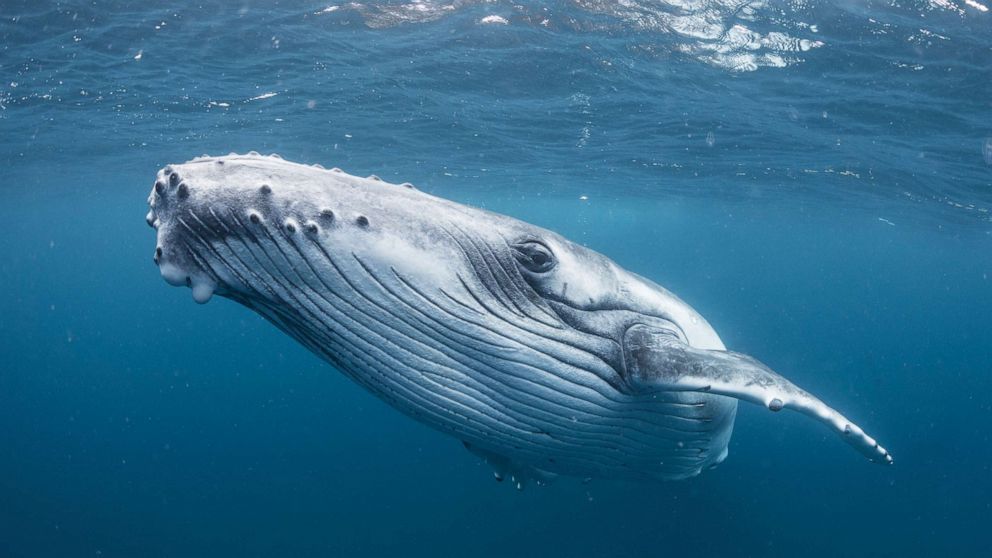Technology
Swatch Group CEO sees ‘massive’ temporary hit in China from coronavirus
[ad_1]
ZURICH (Reuters) – Swiss watchmaker Swatch Group (UHR.S) is taking a “massive” hit from the outbreak of the novel coronavirus that sharply affected business in major market China, Chief Executive Nick Hayek said in a Sunday newspaper interview.
FILE PHOTO: CEO and Chairman of the Board of the Swatch Group Nick Hayek attends the Swiss watchmaker’s annual news conference in Biel, Switzerland March 14, 2019. REUTERS/Denis Balibouse/File Photo
“Given our very strong market position in China, of course we are massively hit by the temporary closing of hundreds of stores,” he told Swiss newspaper SonntagsZeitung.
“But we are seeing fewer problems on the supply chain side because Swatch Group produces a lot by itself in Switzerland,” he added.
“We are a basically solid group without debt and not infected by the virus of stock market short-termism. This situation as well will get better despite all the prophets of doom.”
Hayek dismissed suggestions that the Swiss watch industry was at risk from lower-cost foreign rivals or digital smartwatches like Apple Inc’s Apple Watch (AAPL.O).
“I don’t see a crisis for the Swiss watch industry. On the contrary,” he was quoted as saying, noting actual sales were more important than export data.
“Since 2010 the middle and upper segment at Swatch Group with its seven brands from Tissot to Longines has grown by more than 36% to far more than six million pieces,” he said.
“Tissot alone — and this is the first time I make this public — has grown more than 30% since 2010 to around 3.6 million pieces. Tissot’s only sharp drop in volume was last year, with a fall of around 250,000 pieces in the second half due to the situation in Hong Kong.”
Unrest amid pro-democracy protests in Hong Kong was having a notable effect, but Tissot sales in the United States and Japan were up by around a third last year versus 2015, he noted.
Hayek said exports of entry-level Swiss watches were falling because other manufacturers were focusing solely on the luxury segment in the false belief that was the only area to make money.
Asked about attacks on the mid-priced segment by Apple Watch, Hayek said Swatch had cut its distribution network by around 30% since 2015 because many department stores and shops were hit by online competition.
He acknowledged the company should have acted faster to switch to e-commerce, but said it was well on the way to break the one million barrier in online sales this year.
Swatch was also hit in the lower-price segment by the Swiss franc’s strong appreciation since the Swiss central bank ended its ceiling against the euro EURCHF= in 2015, he said.
The group had no need for job cuts other than a reduction linked to the expiration of a license agreement for Calvin Klein watches in the lower segment, he said.
Reporting by Michael Shields; Editing by Elaine Hardcastle
[ad_2]
Source link
Technology
Apple unveils VR headset Vision Pro

[ad_1]

Apple unveiled its virtual reality (VR) headset, Vision Pro, Monday during its Worldwide Developers Conference.
Apple CEO Tim Cook called the headset a “new kind of computer” that augments reality by “seamlessly blending” the real world and the digital.
“It’s the first Apple product you look through and not at. Vision Pro feels familiar, yet it’s entirely new,” he said.
The product is controlled by the user’s eyes, hands and voice, Cook said.
Vision Pro will start at $3,499 and be available for purchase in early 2024.
Apple’s most direct competitor for Vision Pro appears to be Meta and its Quest headsets.
Meta, formerly known as Facebook, has put a greater focus on virtual reality and the so-called metaverse since the company changed its name in October 2021.
Last week, Meta announced its latest headset model, Quest 3, will be released later this year.
Copyright 2023 Nexstar Media Inc. All rights reserved. This material may not be published, broadcast, rewritten, or redistributed.
[ad_2]
Source link
Technology
Whales face more fatal ship collisions as waters warm

[ad_1]
PORTLAND, Maine —
Climate change is imperiling the world’s largest animals by increasing the likelihood of fatal collisions between whales and big ships that ply the same waters.
Warming ocean temperatures are causing some species of whales in pursuit of food to stray more frequently into shipping lanes, scientists say.
The phenomenon already has increased ship strikes involving rare North Atlantic right whales on the East Coast and giant blue whales on the West Coast, researchers say. The number of strikes off California increased threefold in 2018 — to at least 10 — compared to previous years.
When whales are killed in a ship collision, they often sink and don’t always wash ashore. So scientists and conservationists say fatal ship strikes are dramatically under-reported.
Vessels strikes are among the most frequent causes of accidental death in large whales, along with entanglement in fishing gear. Conservationists, scientists and animals lovers have pushed for the International Maritime Organization to step up to protect the whales, but it won’t happen without cooperation from the worldwide shipping industry.
For the right whales, which number only about 400 and have lost more than 10% of their population in just a few years, the death toll is driving them closer to extinction, said Nick Record, senior research scientist at Bigelow Laboratory for Ocean Sciences in East Boothbay, Maine.
At least three right whales died from ship strikes in 2019 — a small number, but still dangerously high for so small a population. All three deaths were documented in the Gulf of Saint Lawrence off Canada, where scientists have said the whales are spending more time feeding as waters off New England warm.
Scientists say the changing ocean environment with global warming is causing right whales and some other species to stray outside protected zones designed to keep them safe from ships.
“When one of their main food resources goes away, it means they start exploring new areas for food,” Record said. “And that means they’re encountering all new sources of mortality because they are going into these places where they are not protected.”
On the West Coast, where there was increase in whale ship strike deaths, scientists reported that the risk of such accidents has been growing in the 2000s as the blue whale population shifted northward in the North Pacific.
The increased ship strikes could necessitate “a broader area where ships don’t travel,” said Jessica Redfern, an ecologist with New England Aquarium’s Anderson Cabot Center for Ocean Life and lead author of a study published in the journal Frontiers in Marine Science in February.
Moving shipping lanes, and the possibility of enforcing slower speeds for large ships, is a subject of much debate among conservation groups, international regulators and the shipping industry.
Shippers say they have made attempts to work with conservationists, such as an ongoing effort to move a shipping lane in Sri Lankan waters to protect blue whales. In a statement to The Associated Press, the World Shipping Council expressed a willingness to keep working to keep shipping activity away from whales, but expressed skepticism about whether slowing vessels would help.
“Reduced ship speeds also increase the residence time of a ship in a given area where whales are active,” the council said. “Given those factors, there is some notable uncertainty about how effective reducing ship speeds is in lowering the risk of whale strikes.”
Changes to international shipping laws would have to go before the International Maritime Organization, which regulates shipping. The organization has taken numerous steps to protect whales in the past, including agreeing in 2014 to a recommendation for ships to reduce speed to 10 knots (11.5 miles per hour) off the Pacific coast of Panama for four months every summer and fall.
A spokeswoman for the organization declined to comment on the role of warming seas in increased ship strikes. But the subject has caught the attention of the National Oceanic and Atmospheric Administration, which oversees marine issues in the U.S.
Right whales, in particular, began showing a change in migratory behavior around 2010, said Vince Saba, a fisheries biologist with NOAA’s Northeast Fisheries Science Center. That happened as warm Gulf Stream water has entered the Gulf of Maine, a key habitat for the whales, he said.
“With that redistribution, the animals have moved into areas where there weren’t management rules in place to protect them. In a sense, the deck got reshuffled,” said Sean Hayes, head of the protected species branch for the fisheries science center.
Whales also face increased threat because ships now can travel in parts of the sea that were previously ice, said Regina Asmutis-Silvia, a scientist with Massachusetts-based Whale and Dolphin Conservation. As waters continue to warm, the whales will need more protections or the number of deaths will only grow, she said.
“The reality is that it’s time to actually implement the mitigation and that’s going to mean expanding areas where the speed rules would be in place,” she said.
———
Follow Patrick Whittle on Twitter: @pxwhittle
[ad_2]
Source link
Technology
Update to the latest Telegraph Android app

[ad_1]

We are no longer supporting this version of the The Telegraph app. You will need to update to our new app to continue accessing The Telegraph’s content. Please click here.
The new Telegraph app is available on Android 4.1.4 and later.
Our new, faster app delivers all of the content you love plus more:
-
A customisable menu so that you can select the news topics that matter to you.
-
A Top Stories channel highlighting our editor’s choice of the day’s key stories.
-
Notifications on the big news stories so you’re always in the know.
-
Beautiful design and simple usability, so you can scan the headlines at a glance and browse with complete ease.
Should you have any feedback or questions please visit our dedicated help site or email us at appfeedback@telegraph.co.uk.
[ad_2]
Source link
-

 Politics5 months ago
Politics5 months agoFEMA Staff Accused of Withholding Aid from Trump Supporters After Hurricane – Calls for Hate Crime Charges and Jail Time Emerge
-

 Entertainment5 months ago
Entertainment5 months agoGeorge Clooney’s Final Stand: Hollywood Icon QUITS Politics for Good After Kamala Harris’ Slip and Trump Triumph
-

 Politics1 year ago
Politics1 year agoTucker and President Trump explore Bedminster and talk about “America’s favorite sport” and what happens if you misbehave at Bedminster
-

 Politics5 months ago
Politics5 months agoPolish President Andrzej Duda Reportedly Visits Mar-a-Lago to Meet with Donald Trump
-

 Politics1 year ago
Politics1 year agoEXPOSED: JOE BIDEN TRAGEDY ADULT VIDEO PUBLISHED BY TUCKER!
-

 Politics5 months ago
Politics5 months agoTrump’s Bold Move: Dan Bongino for Secret Service Director? The Inside Scoop on Security and Threats!
-

 Politics5 months ago
Politics5 months agoFormer Disney and Pixar Designer Sentenced to 25 Years for Child Exploitation and Human Trafficking
-

 Politics5 months ago
Politics5 months agoTrump’s Bold Move: Appoints Hardline Border Czar to Launch Mass Deportations – “Kamala, You’re FIRED!
-

 Politics5 months ago
Politics5 months agoMSNBC in Flames! Pelosi Blames Biden for Kamala Endorsement—A Turning Point for the Democratic Party?






